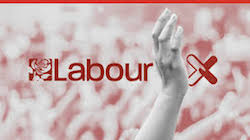Delegates and unions must oppose the leadership’s attempt to railroad through damaging changes to the Labour Party rulebook, says WILL BROWN.
If any further indication was needed that the right of the Labour Party is living in the past, we now have it with news that the leadership wants to reverse the advances in party democracy achieved over the past seven years and go back to systems first introduced in the 1980s.
 Chief among their proposals is a plan to abolish the one member, one vote (OMOV) system for electing party leaders and revert to the electoral college. Other than the ILP, which has supported OMOV since the early 1980s, few have been consistent on this question. In a farcical reversal of roles, the Labour right now supports giving unions and MPs vastly more influence where once they saw OMOV as the prime way to sideline the left.
Chief among their proposals is a plan to abolish the one member, one vote (OMOV) system for electing party leaders and revert to the electoral college. Other than the ILP, which has supported OMOV since the early 1980s, few have been consistent on this question. In a farcical reversal of roles, the Labour right now supports giving unions and MPs vastly more influence where once they saw OMOV as the prime way to sideline the left.
The left of the party, meanwhile, opposed OMOV for decades on the grounds that it reduced the influence of union executives, only to discover the benefits of a more democratic system with the election of Jeremy Corbyn in 2015. Momentum now describes the removal of OMOV as a “shameful attack on democracy”.
In contrast to this factional merry-go-round, the ILP (as noted in David Connolly’s celebration of Eric Preston), has long argued that constitutional issues should not be dictated by game-playing but resolved through a constitution that’s as fair and neutral as possible, giving all members one equal vote – an irrefutable principle of democracy.
So far, Unite and TSSA have resisted the leadership’s temptations to grab more power for the unions. It remains to be seen whether other unions will do so. OMOV was supported by the vast majority of party delegates when introduced in 2014 but the risk now is that the other big unions will fall in behind the leadership and the constituencies be damned.
Corbyn’s limited gains
Other proposed changes reverse the very limited gains in party democracy made during the Corbyn era. Despite proclaiming that he would put policy making in the hands of members, Corbyn’s leadership did precious little to achieve this and was often guilty of the same gerrymandering of conference that are a hallmark of most Labour leaderships.
Changes to the rules for nominating leaders, introduced by Corbyn, gave an unprecedented role to unions – as we reported at the time – and were, if anything, a retrograde step. And he did nothing to reduce the big unions’ grip on conference, maintaining the fiction of party conference as a paragon of democratic virtue.
More positively, though, the party gained the right not only to vote on National Policy Forum reports but to remit sections where changes to policy were sought. Conference also gained the right to debate more motions submitted by delegates. Both of these gains are now also to be removed if Starmer gets his way.
More worryingly, Starmer is going beyond this and directly attacking the role of conference in having any say over policy detail. With no clear proposals on how policy would then be made and endorsed by the party, it will further divorce policy making from the membership.
Starmer has stated that his proposals are not a ‘take it or leave it’ proposition and that the leadership is open to discussion. But this offer is directed at union leaderships, not party members, and arrives mere days before conference, precluding any chance for CLPs and delegates to discuss alternatives.
It is a leadership power-grab that Tony Blair would have been proud of.
—-
See also: ‘The Battle for Labour’s Soul’ and ‘Eric Preston: The ILP’s Optimistic Pessimist’, both by David Connolly.


